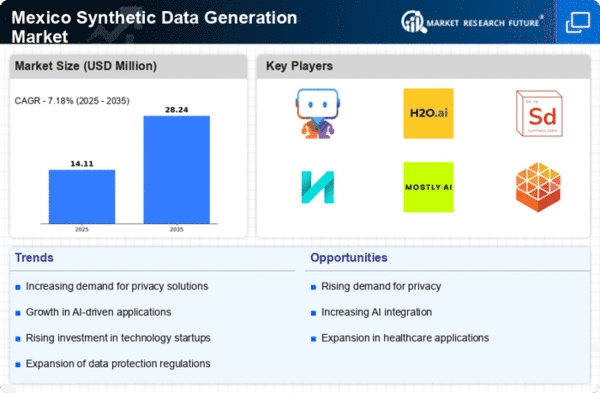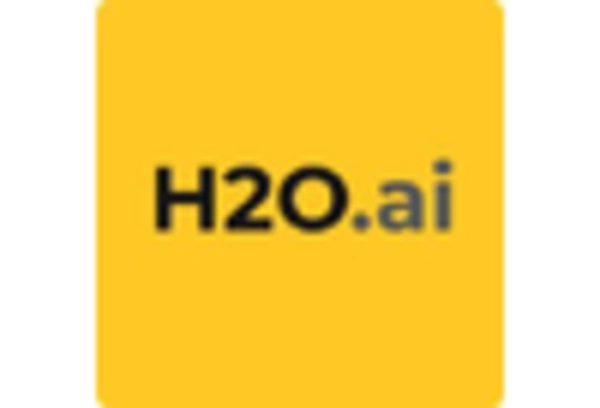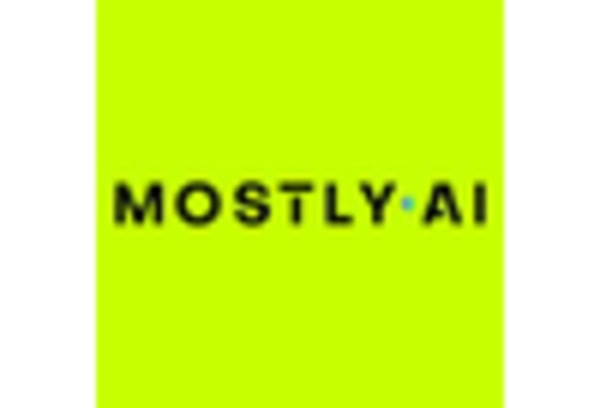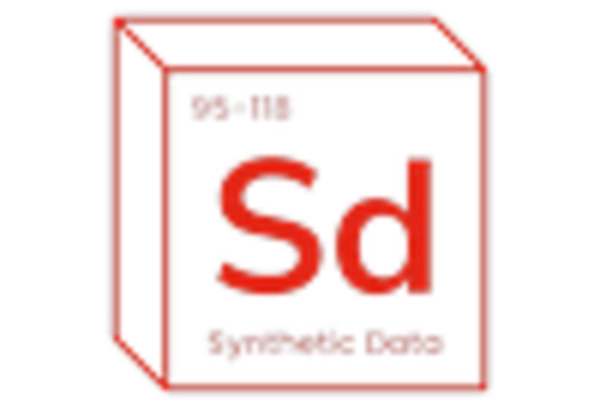Enhanced Data Security Measures
The synthetic data-generation market is also being propelled by the need for enhanced data security measures in Mexico. With increasing incidents of data breaches and cyber threats, organizations are prioritizing the protection of sensitive information. Synthetic data provides a solution by allowing companies to use data that does not contain personally identifiable information (PII). This approach not only safeguards against potential data leaks but also enables organizations to conduct data analysis and machine learning without exposing real data. The market is likely to see a growth trajectory of around 22% as businesses invest in synthetic data technologies to bolster their security frameworks and maintain customer trust.
Increased Regulatory Compliance
The synthetic data-generation market in Mexico is experiencing growth due to heightened regulatory compliance requirements. As organizations strive to adhere to data protection laws, such as the Federal Law on Protection of Personal Data Held by Private Parties, the demand for synthetic data solutions rises. These solutions enable companies to generate data that mimics real datasets without compromising sensitive information. This approach not only helps in meeting compliance standards but also mitigates risks associated with data breaches. The market is projected to grow at a CAGR of approximately 25% over the next five years, driven by the need for secure data handling practices. Consequently, businesses are increasingly investing in synthetic data technologies to ensure they remain compliant while still leveraging data for analytics and machine learning applications.
Growing Adoption of AI Technologies
The synthetic data-generation market is witnessing a surge in adoption as artificial intelligence (AI) technologies become more prevalent in various sectors across Mexico. Organizations are increasingly utilizing AI for predictive analytics, machine learning, and other data-driven applications. However, the availability of high-quality training data remains a challenge. Synthetic data serves as a viable solution, providing organizations with the necessary datasets to train AI models effectively. This trend is particularly evident in industries such as finance and healthcare, where the need for accurate data is paramount. The market is expected to expand significantly, with estimates suggesting a growth rate of around 30% in the coming years, as businesses recognize the value of synthetic data in enhancing AI capabilities.
Expansion of Data-Driven Decision Making
The synthetic data-generation market is benefiting from the expansion of data-driven decision-making practices among organizations in Mexico. As businesses increasingly rely on data analytics to inform strategic decisions, the demand for diverse and high-quality datasets has surged. Synthetic data allows organizations to create tailored datasets that reflect specific scenarios, enhancing the accuracy of their analyses. This trend is particularly relevant in sectors such as retail and logistics, where data-driven insights can lead to improved operational efficiency. The market is anticipated to grow at a rate of approximately 27% over the next few years, as more companies recognize the importance of leveraging synthetic data to support their decision-making processes.
Rising Need for Cost-Effective Data Solutions
In the context of the synthetic data-generation market, the demand for cost-effective data solutions is becoming increasingly pronounced in Mexico. Traditional data collection methods can be resource-intensive and time-consuming, often requiring substantial financial investment. Synthetic data offers a more economical alternative, allowing organizations to generate large volumes of data without incurring the costs associated with data acquisition. This is particularly beneficial for startups and small to medium-sized enterprises (SMEs) that may have limited budgets. As a result, the synthetic data-generation market is projected to grow by approximately 20% annually, as more companies seek to optimize their data strategies while minimizing expenses.
















